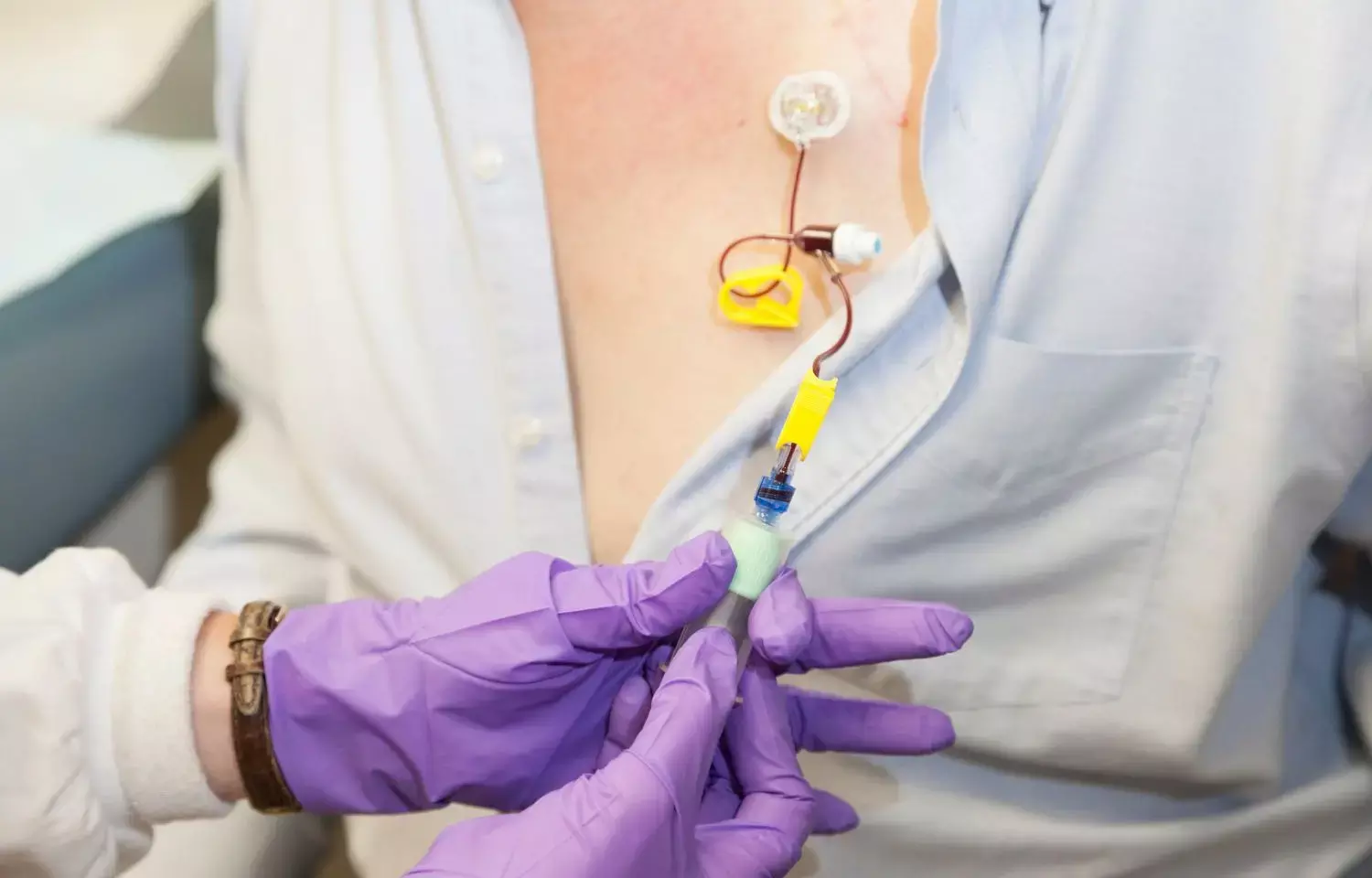- Home
- Medical news & Guidelines
- Anesthesiology
- Cardiology and CTVS
- Critical Care
- Dentistry
- Dermatology
- Diabetes and Endocrinology
- ENT
- Gastroenterology
- Medicine
- Nephrology
- Neurology
- Obstretics-Gynaecology
- Oncology
- Ophthalmology
- Orthopaedics
- Pediatrics-Neonatology
- Psychiatry
- Pulmonology
- Radiology
- Surgery
- Urology
- Laboratory Medicine
- Diet
- Nursing
- Paramedical
- Physiotherapy
- Health news
- Fact Check
- Bone Health Fact Check
- Brain Health Fact Check
- Cancer Related Fact Check
- Child Care Fact Check
- Dental and oral health fact check
- Diabetes and metabolic health fact check
- Diet and Nutrition Fact Check
- Eye and ENT Care Fact Check
- Fitness fact check
- Gut health fact check
- Heart health fact check
- Kidney health fact check
- Medical education fact check
- Men's health fact check
- Respiratory fact check
- Skin and hair care fact check
- Vaccine and Immunization fact check
- Women's health fact check
- AYUSH
- State News
- Andaman and Nicobar Islands
- Andhra Pradesh
- Arunachal Pradesh
- Assam
- Bihar
- Chandigarh
- Chattisgarh
- Dadra and Nagar Haveli
- Daman and Diu
- Delhi
- Goa
- Gujarat
- Haryana
- Himachal Pradesh
- Jammu & Kashmir
- Jharkhand
- Karnataka
- Kerala
- Ladakh
- Lakshadweep
- Madhya Pradesh
- Maharashtra
- Manipur
- Meghalaya
- Mizoram
- Nagaland
- Odisha
- Puducherry
- Punjab
- Rajasthan
- Sikkim
- Tamil Nadu
- Telangana
- Tripura
- Uttar Pradesh
- Uttrakhand
- West Bengal
- Medical Education
- Industry
Pirtobrutinib effective in patients of CLL pretreated with BTK inhibitors: NEJM

In a recent clinical trial, pirtobrutinib, a highly selective noncovalent (reversible) Bruton's tyrosine kinase (BTK) inhibitor, has shown promising results in patients with chronic lymphocytic leukemia (CLL) or small lymphocytic lymphoma (SLL) who have failed treatment with covalent BTK inhibitors. The findings were published in The New England Journal of Medicine.
The study included 317 patients with CLL or SLL, out of which 247 had previously received a covalent BTK inhibitor. The patients had undergone a median of three previous lines of therapy, and some had also received a B-cell lymphoma 2 (BCL2) inhibitor. The primary endpoint was overall response rate (partial response or better) as assessed by an independent review.
The results were promising, with 73.3% of patients achieving an overall response to pirtobrutinib (95% confidence interval [CI], 67.3 to 78.7). When partial response with lymphocytosis was included, the overall response rate increased to 82.2% (95% CI, 76.8 to 86.7). The median progression-free survival was 19.6 months (95% CI, 16.9 to 22.1).
Regarding safety, the most common adverse events observed in the study were infections (71.0%), bleeding (42.6%), and neutropenia (32.5%). Notably, adverse events typically associated with BTK inhibitors, such as hypertension, atrial fibrillation or flutter, and major hemorrhage, occurred relatively infrequently. Only 2.8% of patients discontinued pirtobrutinib due to treatment-related adverse events.
These findings suggest that pirtobrutinib holds promise as a potential therapeutic option for patients with heavily pretreated CLL or SLL who have received a covalent BTK inhibitor. The efficacy demonstrated in this trial, along with the manageable safety profile, provides hope for improved outcomes and enhanced treatment options for patients with relapsed or refractory CLL or SLL.
The results of this phase 1-2 trial are encouraging, but further research is needed to validate the findings and establish the long-term benefits and potential of pirtobrutinib in treating patients with CLL or SLL. This study represents a significant step forward in the development of novel targeted therapies for these challenging-to-treat hematologic malignancies.
Source:
Mato, A. R., Woyach, J. A., Brown, J. R., Ghia, P., Patel, K., Eyre, T. A., Munir, T., Lech-Maranda, E., Lamanna, N., Tam, C. S., Coombs, C. C., Ujjani, C. S., Cohen, J. B., Gerson, J. N., … Jurczak, W. (2023). Pirtobrutinib after a Covalent BTK Inhibitor in Chronic Lymphocytic Leukemia. In New England Journal of Medicine (Vol. 389, Issue 1, pp. 33–44). Massachusetts Medical Society. https://doi.org/10.1056/nejmoa2300696
Neuroscience Masters graduate
Jacinthlyn Sylvia, a Neuroscience Master's graduate from Chennai has worked extensively in deciphering the neurobiology of cognition and motor control in aging. She also has spread-out exposure to Neurosurgery from her Bachelor’s. She is currently involved in active Neuro-Oncology research. She is an upcoming neuroscientist with a fiery passion for writing. Her news cover at Medical Dialogues feature recent discoveries and updates from the healthcare and biomedical research fields. She can be reached at editorial@medicaldialogues.in
Dr Kamal Kant Kohli-MBBS, DTCD- a chest specialist with more than 30 years of practice and a flair for writing clinical articles, Dr Kamal Kant Kohli joined Medical Dialogues as a Chief Editor of Medical News. Besides writing articles, as an editor, he proofreads and verifies all the medical content published on Medical Dialogues including those coming from journals, studies,medical conferences,guidelines etc. Email: drkohli@medicaldialogues.in. Contact no. 011-43720751


